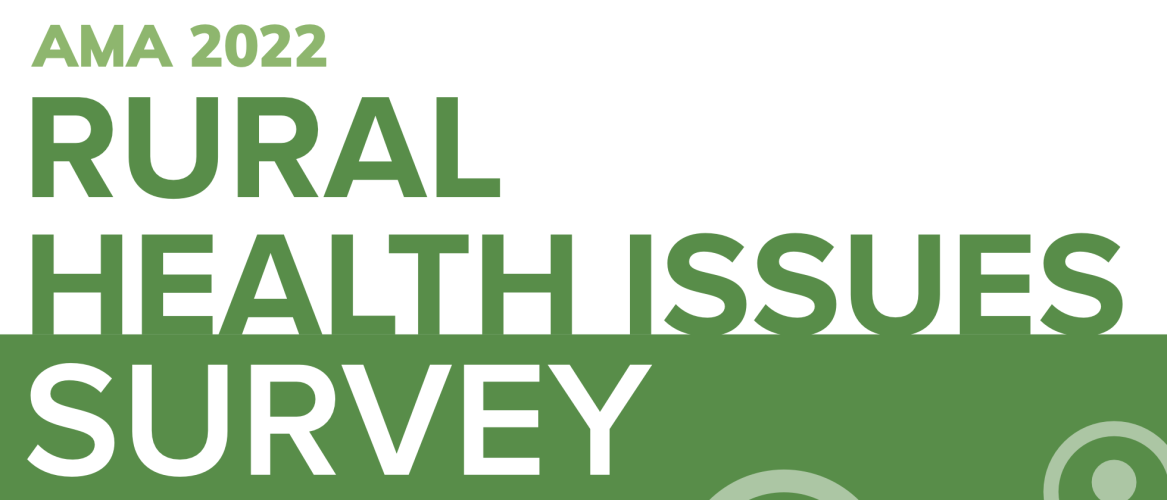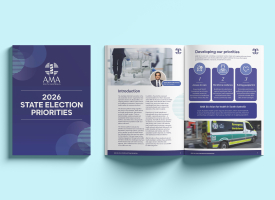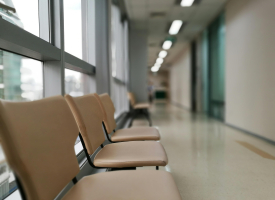2022 AMA Rural Health Issues Survey Report
Developed by the AMA Council of Rural Doctors, the 2022 AMA Rural Health Issues Survey was conducted in February 2022. The Survey results highlight the need for investment to address medical workforce shortages in rural, regional and remote Australia. Rural doctors participated in the Survey provided their proposals for rural health issues, which can be categorised into three groups: training, retention and COVID-19 response.

The survey canvassed the views of regional, rural and remote doctors on the most pressing priorities in 13 areas: rural hospitals, procedural skills, non-GP specialist services, financial incentives, practice support, education and training, undergraduate medical education, locum relief and family support, continuing professional development, technology, COVID-19 context and oral health.
The AMA is calling for investment in the rural medical training pipeline.
To improve access to medical care for regional/rural areas and disadvantaged communities, we need to develop clear training pathways and solutions to rural medical workforce needs and distribution. This requires an increased focus on generalism within the specialist workforce, improved access to specialist services in rural Australia, and development of a rural training pipeline which takes students all the way through to the completion of specialist fellowship training. The achieve this we need to see:
- The expansion of the Commonwealth Government’s Specialist Training Program (STP) to 1700 places over the next term, giving priority to rural areas, generalist training and specialties that are under-supplied;
- Investment in regional teaching hospitals to ensure they have sufficient capacity to host STP-funded non-GP specialist registrars;
- Implement the National Rural Generalist Pathway nationally, and a commitment to ongoing funding;
- Encouragement of end-to-end rural medical training programs, with a view to ensuring they provide positive rural exposure and lead to retention of rural medical practitioners;
- Expansion of capacity for remote learning (training and educational opportunities, especially for trainees in regional/rural sites, and potential remote supervision); and
- Promotion of regional training and research teaching hospital hubs to grow non-GP specialist capacity outside metropolitan areas.



